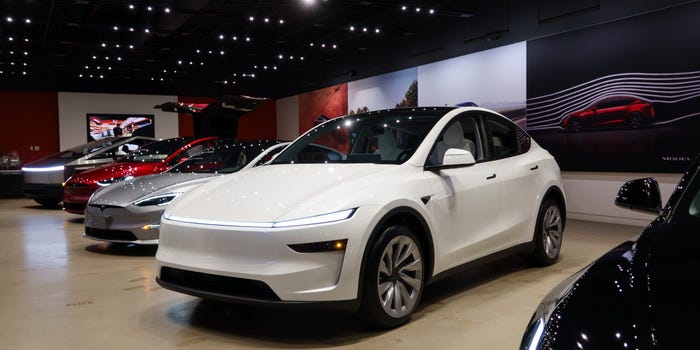
URGENT UPDATE: Tesla has just unveiled lower-cost versions of its popular Model 3 and Model Y, marking a significant shift in the electric vehicle (EV) market as the $7,500 federal tax credit expired on September 30, 2023. This move comes as automakers scramble to adapt their sales strategies in a post-tax credit era, with many rethinking how to attract buyers without government incentives.
In a bold response, Tesla’s new models feature stripped-down options, removing amenities such as power seats and the Autopilot driver-assistance software, resulting in a price reduction of approximately $5,000. This pivot reflects the urgent need for manufacturers to find creative solutions to maintain EV sales momentum in a challenging market.
As Tesla innovates, other automakers are also taking action. Hyundai is currently advertising a staggering $11,000 cash-back incentive on select trims of the 2025 Ioniq 5. Meanwhile, Ford and General Motors are exploring alternative financing options to effectively extend the benefits of the now-expired tax credit, according to reports from Reuters.
Industry experts highlight the dramatic shift in the EV landscape. Ivan Drury, director of insights at Edmunds, emphasized the diverse tactics automakers are employing, stating, “The overarching message of tax credits going away for EVs has had a very different set of approaches from each automaker.” He adds that these strategies focus not on increasing sales but on maintaining current levels amidst shifting consumer preferences.
However, while some companies are ramping up incentives, others are scaling back their EV offerings entirely. Just last month, Stellantis announced it would discontinue the production of the Ram REV 1500, a full-sized electric pickup, due to declining demand in North America. The company confirmed it is reassessing its product strategy in light of market conditions.
Similarly, Acura has decided to halt production of its all-electric ZDX SUV, aligning with its long-term strategic goals. Despite this setback, Acura plans to launch an all-electric compact SUV variant of the iconic RSX nameplate in the second half of 2026, signaling a potential commitment to the future of electric vehicles.
The impact of these pricing strategies and model discontinuations is still unfolding. “We’re going to have to give that a few months,” Drury noted regarding the potential success of lower-cost EVs. As manufacturers navigate this turbulent period, the question remains: which approaches will ultimately resonate with consumers?
As the automotive industry faces this pivotal moment, the future of EV sales in the U.S. is uncertain. Consumers are urged to stay informed as automakers continue to adapt in response to changing market dynamics and consumer demands.
This rapidly developing situation is one to watch closely as it could reshape the electric vehicle landscape in the coming months. Stay tuned for updates on how these changes will affect your next car purchase.






